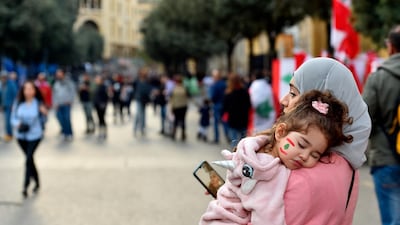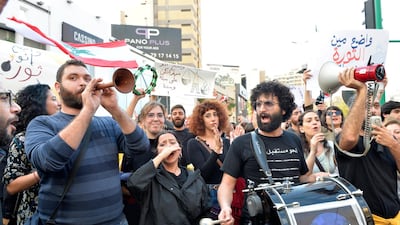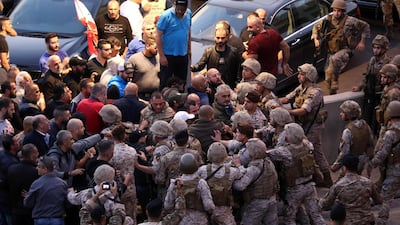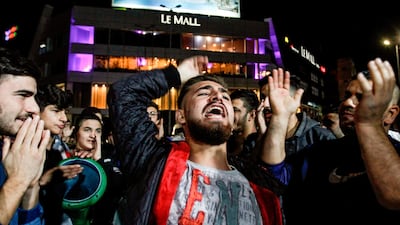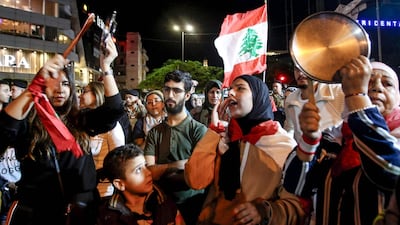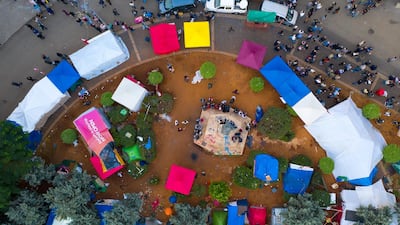In Lebanon's impoverished town of Arsal, two little children have lost their father – not to illness or accident but poverty. After he lost his job at a stone quarry, 40-year-old Naji Fleity was struggling to pay back his debts. On Sunday, he was unable to give his hungry daughter a mere 1,000 Lebanese pounds (roughly Dh2) so that she could buy herself a manoushe, a popular breakfast dish in Lebanon. He took his own life that same day.
The fact that someone died for lack of Dh2 is proof that poverty kills and that the Lebanese state, which is supposed to care for its most vulnerable citizens, has failed in its role to protect the needy. It has in fact, consolidated a political system that has thrived off economic mismanagement and corruption, costing the country’s poor their lives.
Mr Fleity was a family man, kind enough to leave his job in the army six years ago in order to care for his ill wife. He was a veteran, a man who had worked to defend Lebanon. Yet society failed to help him feed his children. No one should have to die because they cannot pay for life’s basic necessities.
And the injustice that has been done to Mr Fleity is far from being an isolated incident. In February, Georges Zreik, another Lebanese citizen in need, self-immolated in front of his daughter’s school in the northern town of Koura, in protest against the tuition fees he could not afford.
Mr Fleity’s tragic story has become emblematic of Lebanon’s troubles and its ongoing uprising, driven widely by economic strife and lack of job opportunities.
News of his death went viral on social media, with many Lebanese expressing compassion for Mr Fleity and anger at a system that let such injustice take place. Some are even referring to him as a “martyr of the revolution”, in reference to the Lebanese uprising.
For the past two months, Lebanon's people of all sects and backgrounds have joined forces in protest against the political class. Prime Minister Saad Hariri's government resigned after two weeks of intense demonstrations, as Mr Hariri expressed his own disdain for the dysfunction of the political system. Since then, the country's financial crisis has intensified, with the pound losing half of its value against the US dollar on the black market.
Protesters blame a corrupt sectarian system for looting the state and failing to solve the country’s economic woes, after years of a widening wealth gap between the rich and poor. According to the United Nations Development Programme, close to a third of all Lebanese live on less than 10 dollars per day. That number has remained virtually unchanged for more than a decade.
Mr Fleity’s death is only a drop in a sea of economic despair. Many more Lebanese are in need of money and job opportunities, despite possessing skills and talents that should allow them to make a decent living, and provide for their children.
Protesters are now asking for a government of technocrats to be put in place. But President Michel Aoun, who is allied with the powerful Iran-backed Hezbollah, has stopped short of naming a successor for Mr Hariri, as traditional parties refuse to give up their power. It is time for the people's demand to be taken seriously. Lebanese lives depend on it and, as the economic situation deteriorates, every single day counts.
When Mr Zreik died nearly a year ago, Lebanon’s political elite did not take stock of this tragedy and this week another man lost his life to poverty. This is no time for self-serving political bickering. The people of Lebanon deserve leaders who will put their own wellbeing above political interests before more lives are lost.
